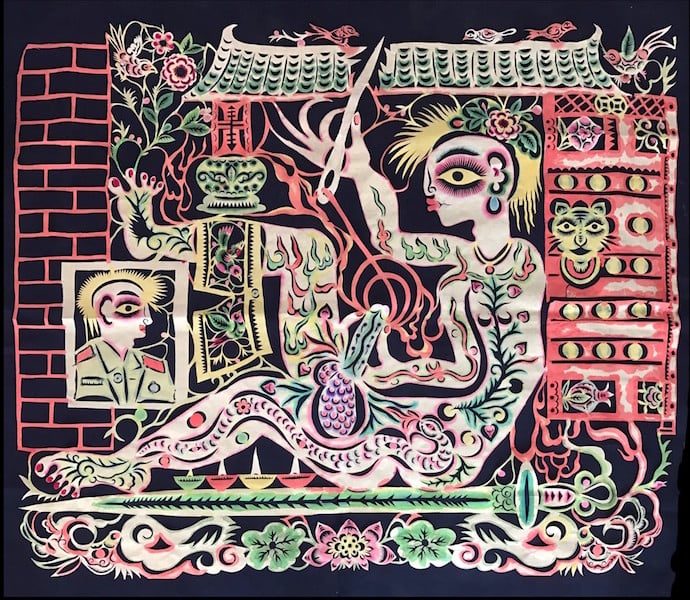
Less than six months after the landmark ruling by Taiwan’s top court that a law defining marriage as between as a man and a woman was unconstitutional, opening the door to the legalization of gay marriage, the Museum of Contemporary Art Taipei will hold the first LGBTQ art survey show at a major museum in Asia.
“We hope the exhibition has a ripple effect across Asian society, and leads to people respecting different sexual orientations,” exhibition curator Sean Hu told CNN. “The works relate to issues facing the Chinese LGBTQ community and our life stories.”
Wang Jun-Jieh, Passion. Courtesy of MOCA Taipei.
“Spectrosynthesis – Asian LGBTQ Issues and Art Now,” opening in September, has been in the works for two years. It will coincide with Art Taipei, Asia’s oldest art fair (October 20–23), and the continent’s largest gay pride parade, Taiwan Pride (October 28).
The exhibition will feature 51 works created by 22 artists from Taiwan, China, Hong Kong, and Singapore, over 50 years.
Samson Young, Muted Situations #5: Muted Chorus (2016), video still. Courtesy of MOCA Taipei.
Participants include Samson Young, this year’s representative for Hong Kong at the Venice Biennale; Chinese-American filmmaker Wu Tsang; and Hong Kong-born photographer Tseng Kwong Chi, who lived and worked in New York’s East Village during the 1980s and is known for his self portraits.
Singapore’s Jimmy Ong will contribute two pieces from his “Ancestors on the Beach” series, based on a popular gay beach in Singapore that was targeted in the 1990s by undercover policemen posing as gay men.
Jimmy Ong, Heart Sons (2004). Courtesy of MOCA Taipei.
He will also show a large charcoal drawing of a gay couple with a baby, titled Heart Sons.
The show’s title, “Spectrosynthesis,” is inspired by the spectrum of light, which of course encompasses the rainbow, the universal symbol for gay pride. The museum hopes to present a diverse and inclusive view of LGTBQ issues, touching on discrimination, identity, culture, and history.
Tseng Kwong Chi, San Francisco, California (Golden Gate Bridge), 1979. Courtesy of MOCA Taipei.
The goal is to bring the exhibition on tour to more conservative Asian countries, letting LGTBQ individuals across the continent know they are not alone, while educating the broader public.
Although Taiwan is among the most progressive regions in Asia when it comes to LGBTQ issues, there is still a long way to go. “We want to reach not only the LGBTQ community or art circles—we want a general public (audience),” Hu told CNN. “We also wanted to push the government to further protect equal rights.”
“Spectrosynthesis – Asian LGBTQ Issues and Art Now” is on view at the Museum of Contemporary Art Taipei, 39 Chang-An West Road Taipei, Taiwan, September 9–November 5, 2017.